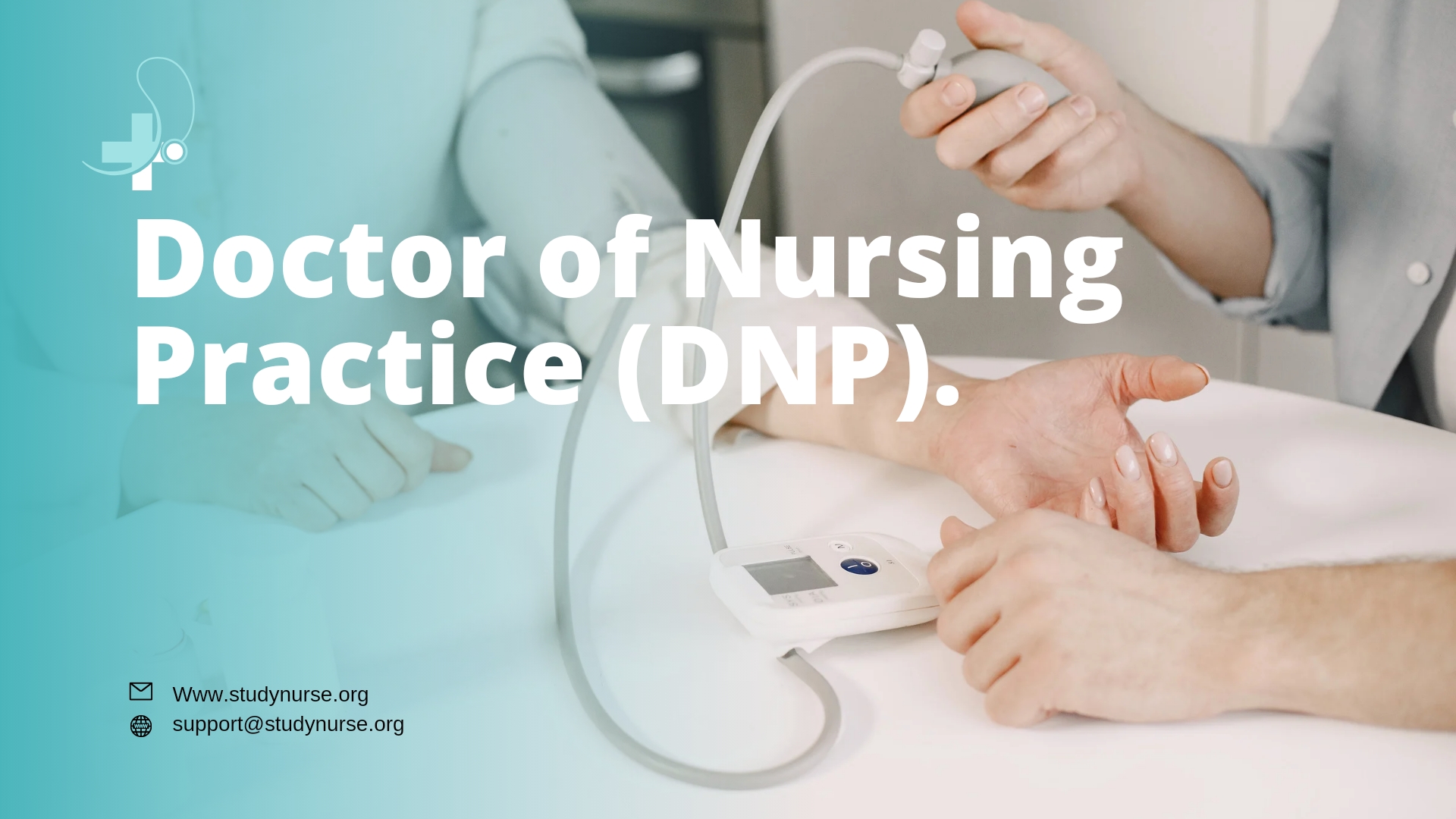The Doctor of Nursing Practice (DNP) is an advanced practice doctoral degree designed for nurses who aspire to enhance their skills and knowledge in clinical practice and leadership. DNP programs are focused on equipping nurses with the ability to translate research findings into real-world applications, promoting evidence-based practices, and improving patient care outcomes.
DNP Nursing: Distinguishing DNP from PhD in Nursing
One common area of confusion for aspiring nursing professionals is the distinction between the DNP and the PhD in Nursing. While both are doctoral-level nursing degrees, they serve different purposes.
- DNP programs are primarily focused on clinical practice. They aim to provide nurses with the skills necessary to implement evidence-based solutions in healthcare settings. The DNP curriculum typically includes coursework in leadership, healthcare policy, and advanced clinical practice.
- On the other hand, PhD in Nursing programs concentrate on nursing research. These programs are geared toward individuals interested in conducting original research to advance nursing knowledge, often in academic or research settings.
Choosing the right path depends on your career aspirations. If you want to focus on improving patient outcomes through the application of research, a DNP may be more suitable. However, if you’re interested in developing new theories and conducting research, a PhD might be a better fit.
Both the DNP and PhD degrees are highly respected in the healthcare industry, but they offer different career paths. Many healthcare institutions value the unique expertise of both DNP-prepared nurses for their leadership in clinical settings and PhD-prepared nurse scientists for their research contributions, aligning with the American Nurses Credentialing Center’s (ANCC) Magnet Recognition Program, which recognizes healthcare organizations that provide excellent nursing care.
Exploring Diverse DNP Programs
DNP programs offer various specializations, allowing nurses to pursue career paths in a wide range of areas. Some of the key specialties include:
- Nurse Practitioners (NPs)
- Clinical Nurse Specialists (CNSs)
- Nurse Anesthetists
- Nurse Midwives
- Nursing Leadership and Administration
- Nursing Education
- Public Health Nursing
- Nursing Informatics
- Nursing Ethics and Public Policy
These specialized programs are designed to cater to the diverse needs of the nursing profession, equipping nurses with expertise in their chosen area of focus. Many DNP programs are offered in flexible online formats to accommodate working professionals, while some programs combine online coursework with in-person clinical experiences for hands-on learning.
Educational Pathways to Becoming a DNP
Admission into a DNP program typically requires a master’s degree in nursing. However, some universities offer combined master’s and DNP programs for nurses who have completed a bachelor’s degree in nursing (BSN). These accelerated programs allow BSN-prepared nurses to fast-track their way to a DNP.
Pre-requisites for admission may vary by program. For example, programs designed for advanced practice roles, such as Nurse Practitioners (NPs) or Nurse Anesthetists, may require prior RN experience or Advanced Practice Registered Nurse (APRN) licensure. Additionally, some programs may have specific clinical hours or healthcare experience requirements to ensure that students are adequately prepared for advanced practice coursework.
For nurses looking to transition into the DNP pathway from a BSN, programs that offer a BSN to DNP option are increasingly popular. These programs allow nurses to gain both their master’s and doctoral degrees in a streamlined, efficient format.
Leveraging a DNP for Career Advancement
One of the most compelling reasons to pursue a DNP degree is the significant career advancement it offers. Nurses with a DNP are highly regarded in healthcare settings for their ability to influence patient care through research-based practices. Below are some of the career benefits of obtaining a DNP:
- Board Certification and Licensure Requirements
In the near future, obtaining a DNP may become a prerequisite for board certification and licensure for many Advanced Practice Registered Nurses (APRNs). As healthcare continues to evolve, regulatory bodies are increasingly recognizing the value of doctoral-level training for advanced practice roles. - Leadership Opportunities
A DNP can also open doors to nursing leadership roles. Nurses with a DNP are in high demand for executive-level positions in healthcare organizations, such as Chief Nursing Officers (CNOs), nursing directors, and healthcare administrators. With a strong emphasis on leadership and healthcare systems management, DNP-prepared nurses are well-equipped to lead teams and drive organizational improvements. - Competitive Edge in the Job Market
As the healthcare industry grows and patient needs become more complex, the demand for highly skilled nurses is increasing. Holding a DNP can make you a more competitive candidate, particularly in leadership or advanced practice roles. - Salary Increases
Nurses who earn a DNP often see significant salary increases. In some cases, a DNP-prepared nurse can earn higher compensation than their colleagues with only a master’s degree or bachelor’s degree. Additionally, some healthcare organizations offer incentives for nurses to pursue doctoral-level education, leading to even more career benefits. - Exploring Job Opportunities
The American Nurses Association’s (ANA) Career Center is a valuable resource for DNP-prepared nurses. It provides job listings and resources specifically tailored to individuals with doctoral degrees, enabling nurses to explore a wide range of career opportunities.
DNP as a Catalyst for Change in Healthcare
The DNP degree is more than just a credential—it’s a tool for transforming healthcare. Nurses with a DNP are uniquely positioned to influence healthcare policies, improve patient outcomes, and foster evidence-based practices across the system. DNP-prepared nurses are leaders in patient safety, quality improvement, and healthcare innovation.
Many DNP nurses work closely with interdisciplinary teams to implement best practices, manage chronic conditions, and advocate for patient rights. As healthcare systems increasingly rely on data-driven decisions, the DNP degree provides the foundation for integrating evidence-based research into everyday practice.
Is the DNP Right for You?
Pursuing a Doctor of Nursing Practice (DNP) degree is a significant commitment that offers substantial rewards for nurses interested in advanced clinical practice, leadership, and healthcare transformation. Whether you are looking to specialize in a particular area of nursing, gain leadership skills, or become a key influencer in improving patient care, the DNP offers numerous opportunities for growth and professional development.
As healthcare systems evolve, the role of DNP-prepared nurses will continue to be vital. Whether you’re already an advanced practice nurse (APRN) or looking to transition into a leadership role, the DNP degree can be the gateway to a fulfilling and impactful career.
If you’re interested in learning more about how to pursue a Doctor of Nursing Practice degree, explore program options at leading institutions and take the first step toward advancing your nursing career.



